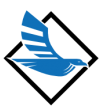FOD, will it be necessary to inspect the B737NG?
The problem
The nightmare of the ongoing troubling revelations about the MAX and Boeing is getting worst. This time it was the presence of foreign debris in the MAX tanks that made the headlines. In aviation, we use the acronym FOD (foreign object debris) to designate the presence of an object that is fund where it should not be.
According to Reuters reports this morning, debris was found in the tanks of 50% of the MAX inspected. The Reuters article also mentions that at least 35 MAX inspected contained FOD. For its part, the Wall Street Journal establishes at 75% the proportion of MAX inspected with FOD. We’re talking about forgotten tools, rags and other debris left in the tanks. The presence of these objects could damage the aircraft’s fuel system. Even though none of the 400 MAXs remaining were free from contamination, the proportion is close to 10%. This is already a very large proportion and this raises many doubts about the safety culture at Boeing.
Fuel tanks have access panels that facilitate inspection. But on an airplane, there are several sealed compartments that are difficult to access. The question then arises whether an inspection of those compartments should be required. Think of the flight control cables that could get stuck due to the presence of a FOD. The high percentage of MAX with debris points to a complete lack of aviation safety culture. The most basic precautions have not been applied.
The solution
The first 737MAX was delivered in May 2017, at that time, 737NG were mainly produced. The obvious lack of safety check for the production of the MAX also raises doubts about the 737NG. It is to be expected that the FAA will order visual inspections of the few 737NG produced in 2019 in the coming days. The discovery of FOD in the tanks would then lead to an inspection of all the aircraft produced in the last years.
>>> Follow us on Facebook and Twitter

